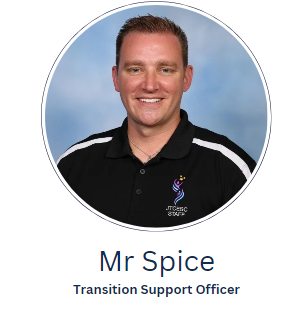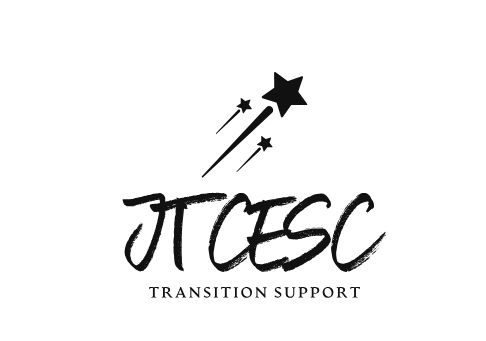At John Tonkin College ESC, our Transition Support Officer plays a crucial role in guiding students and their families toward successful future pathways. Dedicated to fostering a smooth transition from school to post-school opportunities, the officer is a valuable resource for understanding and navigating key systems such as the National Disability Insurance Scheme (NDIS), Disability Support Pension (DSP), career pathways, and community connections.

The Transition Support Officer is committed to helping families comprehend the various options available to them, ensuring they are well-informed about the support systems in place to assist their child. By providing personalized guidance and resources, the officer enhances students’ readiness for life beyond school, helping them explore vocational training, employment opportunities, and further education.
In addition to facilitating connections with local services and community organizations, the Transition Support Officer collaborates closely with educators, families, and external agencies to ensure a holistic approach to each student’s transition. By working together, we aim to create a supportive environment where students not only feel empowered but also have a clear and achievable pathway to a fulfilling life after school. Our commitment to this important work reflects our belief that every student deserves the opportunity to thrive and succeed in their future endeavours.
The Transition Officer’s main objectives include:
1. Hosting information sessions with external agencies: Our Transition Officer facilitates informative sessions that connect our students, parents/carers, and support agencies. This ensures that everyone involved is well-informed about the available resources and support systems.
2. Assisting with Centrelink and external agency connections: Our Transition Officer actively helps our students and their parents/carers in navigating the processes and requirements involved in accessing Centrelink support and external agency services. This aims to alleviate any potential challenges and streamline the transition process.
3. Building networks with relevant therapy organizations: Our Transition Officer connects with different therapy organizations that are pertinent to the individual needs of our students. This collaboration enhances the support we provide and ensures that our students receive the necessary therapy services.
4. Creating information packs on community activities: Our Transition Officer compiles information packs that outline community sporting and leisure activities aligned with the students’ interests and future goals. These packs encourage community engagement, help establish relationships, and foster independence in social settings.
5. Providing information to Year 11 students: The Transition Officer supports incoming Year 11 students at JTCESC by sharing information about the available support and events within the community. This enables our students and their parents/carers to make informed decisions regarding post-school options.
6. Contributing to community events: Our Transition Officer actively participates in working groups that support the planning and execution of City of Mandurah community events. This involvement fosters community interaction and highlights the importance of inclusivity.
7. Organizing programs with feeder schools: The Transition Officer coordinates programs with feeder schools such as Meadow Springs Primary School ESC, Riverside Primary School ESC, and Halls Head College ESC. These programs involve students from these schools coming to JTCESC for six-week blocks to experience our cooking and workshop activities. These partnerships have proven to be highly beneficial for smooth transitions and positive outcomes for future students.
